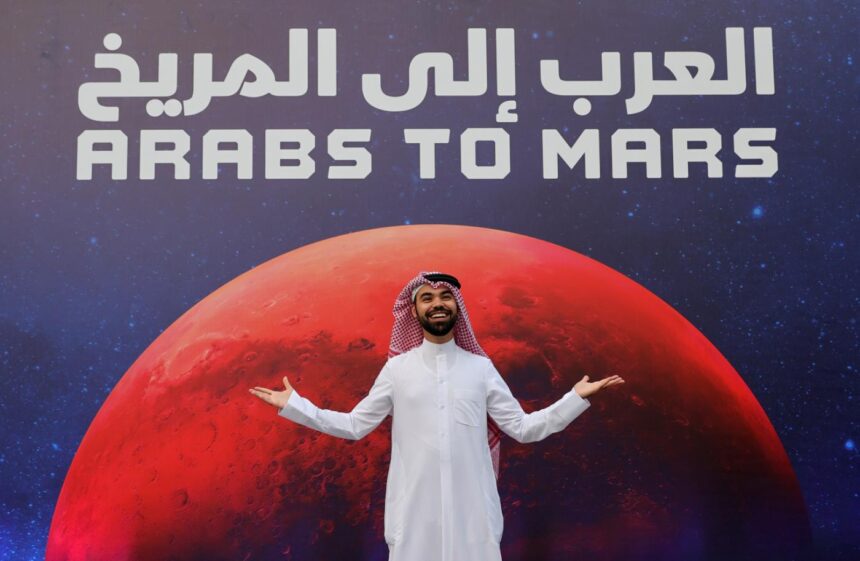Now, The United Arab Emirates (UAE) is among the leading Middle East countries in the field of space.
As the UAE has launched a number of important space projects in recent years due to steadfast commitment to promote sustainable development and contribute to humanity in areas such as science, technology, and space exploration.
Obviously, Mohammed bin Rashid Space Center (MBRSC) in Dubai is a very important organization.
The Center established in 2006.
Moreover, the center is responsible for designing, building, and operating the UAE’s satellites and space missions.
MBRSC has been instrumental in the UAE’s space program.
The Center plays a key role in the development of the country’s first Earth observation satellite, DubaiSat-1, which was launched in 2009.
One other important project is the first Emirati satellite which launched in 2018:
The UAE launched its first Emirati-made satellite, KhalifaSat, in October 2018.
Furthermore, the satellite designed and built completely by Emirati engineers.
It was launched from the Tanegashima Space Center in Japan.
KhalifaSat is a remote sensing Earth observation satellite that captures high-resolution images of the Earth’s surface for a variety of applications.
The Applications include: urban planning, environmental monitoring, and disaster management.
Also, the UAE has launched the Hope Probe Mission by July 19,2020:
The first interplanetary mission launched by the United Arab Emirates is The Hope probe.
It was launched from the Tanegashima Space Center in Japan.
The Hope Probe arrived at Mars on February 9, 2021.
Not only the mission was designed to study the Martian atmosphere and climate but also with the goal of providing a comprehensive understanding of the planet’s weather patterns and changes over time.
Additionally, the probe is equipped with three scientific instruments that measure the properties of the Martian atmosphere and study the planet’s climate dynamics.
Also, the data collected by the Hope probe is shared with the global scientific community, contributing to greater understanding of the Red Planet.
In addition, the UAE launched the “Emirati astronaut” mission in 2021:
It is the first space mission led by an Arab country to the International Space Station.
-In 2019, the country sent its first astronaut, Hazza Al Mansouri, to the International Space Station (ISS) as part of an eight-day mission.
-In 2021, the UAE sent its second astronaut, Sultan Al Neyadi, to the ISS for a six-month scientific mission.
Where he conducted advanced experiments and tested technologies for future space missions.
Recently, CNN reported on Emirati astronaut Sultan Al Neyadi:
Sultan Al Neyadi is currently on a six-month scientific mission aboard the International Space Station.
Al Neyadi emphasized the importance of conducting advanced experiments and testing technologies for future space missions.
Especially the UAE’s ambitious goal to build a settlement on Mars by 2117.
Finally, The UAE has continuous efforts to enhance its capabilities in space and technology.
Also, the UAE is committed to achieve ambitious goals in the space field.
Furthermore, The UAE’s space agency aims to send a compact lunar rover, dubbed Rashid, to study the moon in 2024.





